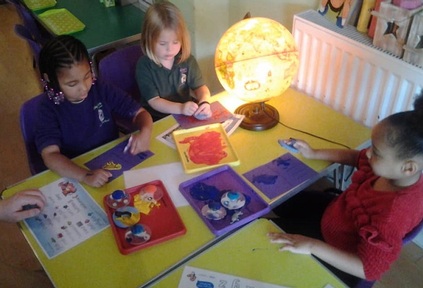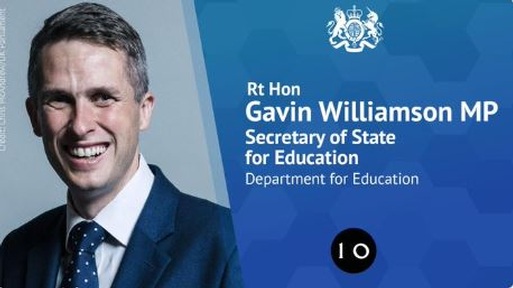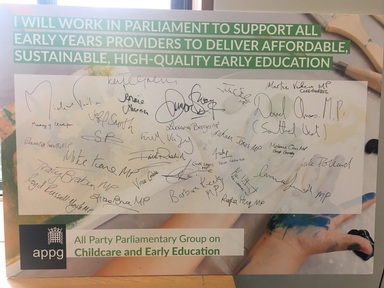Nursery boss says 'cultural capital has always been important, it shouldn't be new'
Ofsted is calling on nurseries to use cultural capital to reduce inequality, however a nursery chief has said ‘cultural capital has always been important, it shouldn’t be new’.
![]() Credit: Crafty Wizards
Credit: Crafty Wizards
The education regulator caused anxiety in the childcare sector earlier this year by adding the term cultural capital to the 2019 Ofsted draft inspection framework as part of the ‘quality of education’ judgement.
The French sociologist Bourdieu created the term cultural capital in the 1960s to describe the knowledge, skills, values and experiences that help you to get ahead in life and especially in education. With nurseries playing a vital part in the early years of children, they can be invaluable in giving children cultural capital that will boost their life chances.
However Juliet Mickleburgh writing for the Foundation Stage Forum asks who decides what we value as cultural capital. She quotes the EYFS draft handbook, ‘Cultural capital is the essential knowledge that children need to be educated citizens’, saying: So, who defines the activities and content that children need to build their cultural capital?'
'A danger that working class culture is seen as inferior to middle class culture'
She questions if there is ‘a danger that working class culture could be seen as inferior to middle class culture? And what about the variety of experiences brought by children today who are living in our multi-cultural society?
‘According to Cultural Capital theories, some activities are considered more valuable than others. Classical music is generally thought to have greater capital than rap and Thomas Hardy’s novels would have more to add than graphic novels,’ she adds.
Ms Mickleburgh warns that ‘as educators, we will need to be mindful not to fall into the trap of uniformity as we address cultural capital in our settings. We need to understand the origins of the term and its complexities. Used wisely, cultural capital can help us value where children are coming from while facilitating and celebrating where they could go next.’
'Cultural capital shouldn't be new'
Matthew Byrne, director of Crafty Wizards, a nursery group in South London, endeavours to incorporate children’s backgrounds into their cultural capital experiences. He says: “Cultural capital is important. Cultural capital has always been important, it shouldn’t be new. Effective practitioners should always have been building the foundation blocks for children’s future success. We should always be reflective of the curriculum that we are providing to ensure that experiences and opportunities make a real difference to a child’s future, always thinking of strategies to narrow the gap, whichever cohort of children this might be.”
Cultural capital is nothing new to Crafty Wizards Pre-Schools, according to Mr Byrne, who says: “The phrase may be, but not the essence of it. During our interactions with children we should always be aiming to inspire, energise and help children to experience the awe and wonder of the world. Giving our children learning experiences through all forms of teaching ensures that our children are prepared for future success so that they are ‘educated citizens.”
At Crafty Wizards, they offer the children “home inspiring sacks linked around children’s stories, songs and potential topics”.
The children also go on regular trips in their locality “to inspire questioning about our community” as well as regular library trips. The children are also given opportunities to vote, to give opinions, and to share interests.
“We have a focus on a different country in some form every week, share stories, songs and information about communities around the world,” he says.
Language and communication skills play a huge part in children's future success
Mr Byrne believes “preparing our children for future success can be directly correlated to the number of words a child knows. We provide a range of small talk activities, supported by our experiences of I-Can strategies for children with delayed communication skills. We develop ‘intervention’ groups for those children that need additional support. Daily circle time activities supported with symbols and simple Makaton signs have been successful in narrowing the word gap.”
Claire Howard, nursery manager at Busy Bees at Lewes also does her best to ensure cultural capital is at the core of the EYFS learning approach.
She told daynurseries.co.uk: “When a child arrives at our nursery, we do not pre-assign them a Key Person. Instead, all of the room staff spend time with the child and the family, and we identify which practitioner is the best fit.
“We spend time with the child and their family to find out about the child’s interests, as well as completing a baseline assessment to ascertain where the child’s starting points are at. The time spent with the family during settling in sessions is valuable, not only does it allow us to gain a full picture of the child but also ensures we fully understand how we can provide for their learning and development.
Once Busy Bees have identified the key person, the key person will dedicate their time to the child and their family and find out all about their home life and what kind of experiences they have already had outside of the nursery setting.
Ms Howard said: "If they go on days out, are they read to at home and what’s their favourite book. By doing this we aim to get the full picture of the child’s home life."
Children gain an understanding and awareness of nature
The nursery frequently visits the local park and nearby gardening area, so the children are able to understand nature. Ms Howard said: “The garden area, has different sections such as wildflowers and planted areas, here children can learn the different types of flowers and observe them growing.”
![]() Credit: Busy Bees, Lewis
Credit: Busy Bees, Lewis
Busy Bees have created an indoor garden and growing area where they grow vegetables. “Areas like these are particularly important for the children who we know live in flats and may have limited access to natural spaces or the opportunity to grow their own plants.”
June O’Sulllivan, chief executive of the London Early Years Foundation (LEYF) began exploring the concept of cultural capital a decade ago. Writing in her LEYF blog, she said: “Having grown up in a working-class world, I knew that there was a world beyond me which valued things I didn’t even know about.
When I arrived in England, those differences were more apparent perhaps because I was an outsider. I couldn’t always name it but I realised that how you speak, hold your knife and fork, where you shop, how you name your children, what you did in your spare time and much more was associated with different values, some more prized than others.
Knowing certain values boosts your chances for success in life
“However, what took me a while to recognise was that knowing and understanding these subtleties could improve your access and opportunity to education, employment and success.”
Gill Jones, HMI early education deputy director spoke to delegates at the Early Years Alliance conference earlier this year and tried to bring some clarity to the term cultural capital, saying: “Some children arrive at an early years setting with poorer experiences than others, in their learning and play. What a setting does, through its curriculum and interactions with practitioners, potentially makes all the difference for children."
Ms Jones then asked delegates to think about: “What resources have you chosen for your children and why? What are you expecting children to learn with the experiences you are giving them? It is the role of the setting to ensure that children experience the awe and wonder of the world in which they live, through the seven areas of learning.”
Ms Jones gave examples such as talking and singing to children at all times including nappy changing. “They are experiencing knowledge beyond those children that never experience that. So, what you do in that setting to give children that experience is really important and more importantly it is the words that we give them in order to express themselves.”
click here for more details or to contact Crafty Wizards Group
Latest News Analysis
 06-Aug-19
Nursery boss says 'cultural capital has always been important, it shouldn't be new'
06-Aug-19
Nursery boss says 'cultural capital has always been important, it shouldn't be new'
 25-Jul-19
Gavin Williamson appointed education minister
25-Jul-19
Gavin Williamson appointed education minister
 17-Jul-19
Flexible Working Bill for all jobs gets MPs approval - delighting parents, disabled and carers
17-Jul-19
Flexible Working Bill for all jobs gets MPs approval - delighting parents, disabled and carers
 03-Jul-19
MPs blame government policies for nursery closures in deprived areas
03-Jul-19
MPs blame government policies for nursery closures in deprived areas
 14-May-19
Number of schools wanting to pilot Reception Baseline Assessments 'embarrassingly low'
14-May-19
Number of schools wanting to pilot Reception Baseline Assessments 'embarrassingly low'